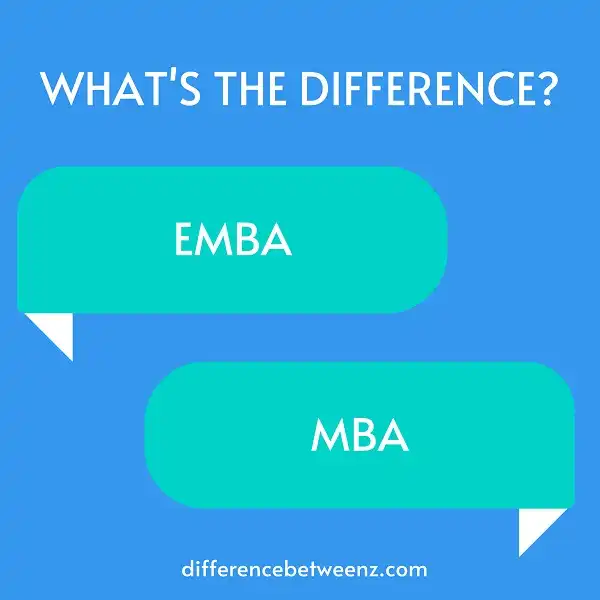Both an EMBA and MBA are great options for career growth, but there are some differences between the two. An EMBA is typically geared towards experienced professionals who want to gain management skills, while an MBA is more general and focused on business fundamentals. If you’re trying to decide which program is right for you, consider your career goals and experience level.
What is EMBA?
The Executive MBA (EMBA) is a type of Master’s degree designed specifically for working professionals. EMBA programs are typically much shorter than traditional MBA programs, and they often offer evening or weekend classes to accommodate student’s busy schedules. EMBA students also tend to be older and more experienced than their counterparts in traditional MBA programs. Because of this, EMBA programs typically place more emphasis on real-world experience and practical skills. EMBA graduates often go on to assume leadership positions within their organizations.
What is MBA?
MBA is an abbreviation for Master of Business Administration. MBA programs are graduate-level academic programs that typically last two years. MBA programs cover a broad range of business-related topics, including accounting, finance, marketing, and strategic management. MBA programs prepare graduates for leadership roles in businesses and other organizations. Many MBA programs also include an internship component, which gives students the opportunity to gain real-world experience in the field. MBA programs are offered by many colleges and universities around the world.
Difference between EMBA and MBA
EMBA and MBA programs are both designed to provide students with the skills and knowledge necessary to succeed in business. However, there are some key differences between the two degrees. EMBA programs tend to be more focused on practical applications, while MBA programs place a greater emphasis on theoretical knowledge. EMBA programs are also typically shorter in duration than MBA programs, which can make them more affordable and convenient for working adults.
Finally, EMBA programs often have stricter admissions requirements than MBA programs, as they are geared towards mid-career professionals with several years of work experience. Ultimately, whether an EMBA or MBA is right for you will depend on your career goals and educational needs.
Conclusion
So, what is the difference between an EMBA and MBA? The answer to that question really depends on your individual needs and goals. An EMBA may be a better fit if you are looking for more leadership development opportunities or want to focus on growing your business skills. If you are interested in pursuing a career in academia or research, then an MBA may be the better choice.
Ultimately, the decision comes down to what you hope to gain from your education and how much time and money you are willing to invest. No matter which degree you choose, both programs will offer a world-class education that can help propel your career forward.


